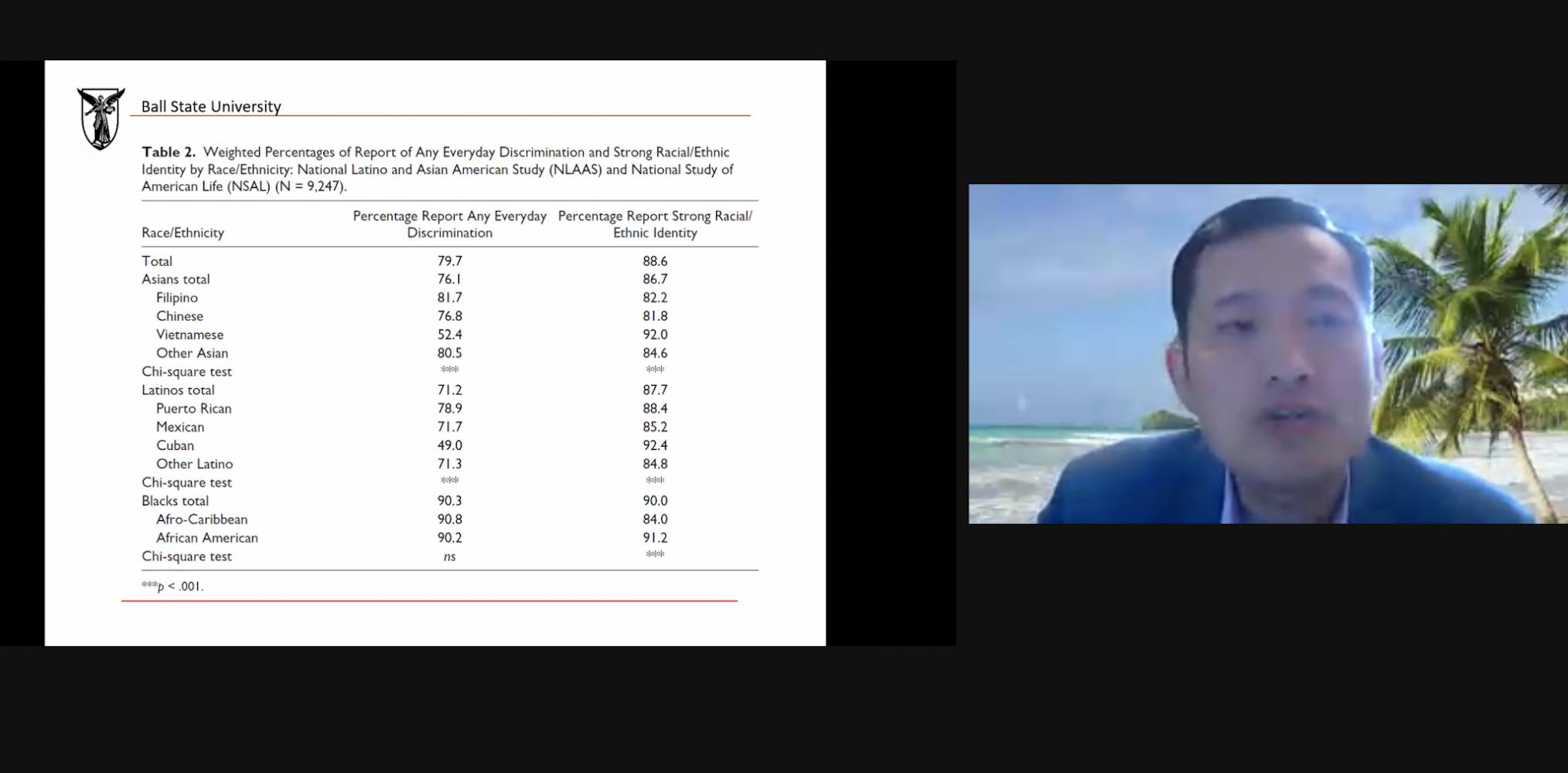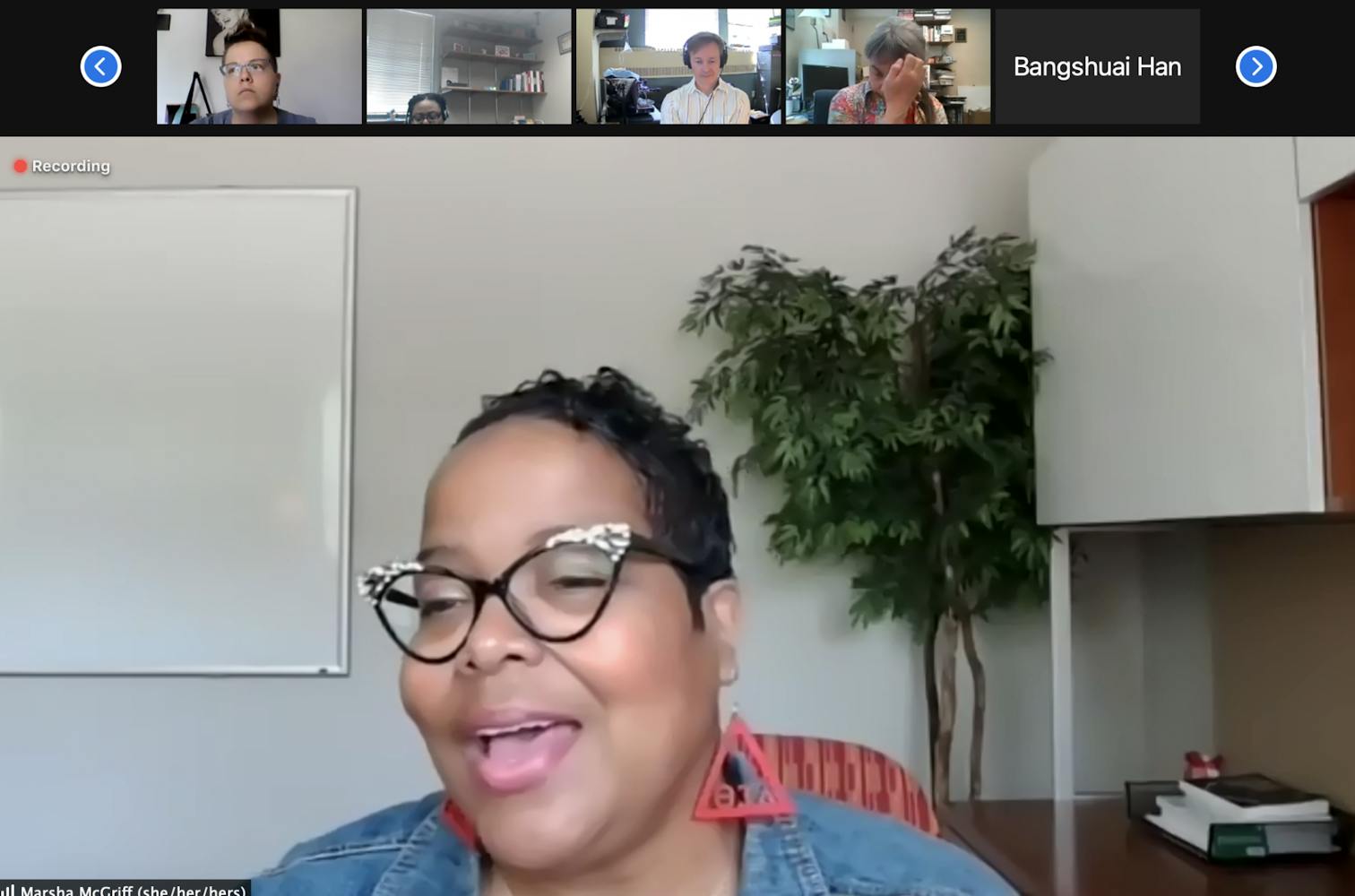Ball State has a new group dedicated to serving minority faculty and staff and educating the campus community about history and inclusivity. While the Asian American Pacific Islander (AAPI) Affinity Group is still in the formation process of being recognized as an official organization, it hosted its first Zoom presentation May 20.
The presentation was dedicated to the “Past Adversities, Present Challenges, and Future Possibilities of the AAPI Community,” according to a Communications Center announcement.
The presentation — by Associate Professor of Sociology Fang Gong, Professor of Sociology Jun Xu and Assistant Professor of Health Science Mengxi Zhang — focused on discrimination members of the AAPI community have faced before and during the COVID-19 pandemic.
Last year, Xu said, hate crimes against Asians rose 150 percent in the United States. He reminded attendees Asians have experienced racism and anti-immigrant policies long before the COVID-19 pandemic.
“From my personal experience, from my own kids’ and my own conversations with my Asian friends, it would be very hard to find an Asian parent and their kids not complaining about being a victim [of bullying] and singled out in school,” he said. “That’s very disheartening for me to know that.”
Xu said he was inspired to start the AAPI Affinity Group from his own research as a sociologist. This group, he believes, will help Ball State retain diverse faculty members if they feel their voices are heard.
"I have this unwavering responsibility to be an advocate for the AAPI community and to help form this group is just a natural choice," Xu said via email. "I’ve researched on and experienced first hand some of the challenges that members of this community face. With the recent surge of anti-Asian violence, I believe it has become imperative to start this group so that those within and outside the AAPI community can better understand each other."
One goal of the AAPI Affinity Group, Xu said, is to foster networking and mentorship for AAPI faculty and staff, as well as offer resources to members of other racial and ethnic minority groups. Xu said membership will be limited to faculty and staff, but that he would be willing to serve as a faculty adviser for a student organization if needed.
Once the group is officially recognized, Xu said he hopes to host two meeting per semester, and additional meetings when requested.
Other goals of the group, Gong said, are to promote mental health and exchange ideas on recent research from the AAPI community. She said she was inspired to start the affinity group from her experience on the College of Science and Humanities' Inclusive Excellence task force.
"The inspirations to start the group were from several sources, including my personal research interests in Asian American mental health, the recent surge in anti-AAPI hate crime across the nation, and the culture of inclusive excellence at Ball State," Gong said via email.
A Public Broadcasting Service documentary episode, which was recommended viewing before the presentation Thursday, said Asian Americans have faced stereotypes of being impolite to other racial minorities or a narrative that “Korean and Black people are in this conflict.”
Xu said his understanding of the documentary was Korean Americans and African Americans were both victims of a problematic justice system and he thought the main message was to form a "coalition with people of all racial and ethnic background so that people can live peacefully and lovingly with one another."
Gong said in the presentation some of the first examples of Asian xenophobia in the United States occurred in the late 1800s, when Chinese and Asian American people were assigned the most dangerous tasks in building the transcontinental railroad, where many workers died without their accomplishments and contributions being recognized.
“Instead of being appreciated for building the railroad, the Chinese and other immigrants from East Asian countries had caught a form of xenophobia — termed ‘the yellow peril,’ also called ‘the yellow terror’ or ‘yellow fear,’” Gong said. “This is a racist ideology, which treats East Asian immigrants as existential dangers and potential threats to the Western world, both economically and culturally.”
During the Civil Rights movement of the 1960s, Xu said Asian Americans were labeled “model minorities” because they were a small population in the U.S. and were viewed as obedient workers.
“Here comes a seemingly welcoming label, but it has had an insidious affect on the AAPI community in various ways,” Xu said. “Some scholars argue that at the peak of the Civil Rights movement, this [label] is used to drive a wedge, especially against African Americans.”
After the presentation, Marsha McGriff, associate vice president for inclusive excellence, said she was not taught AAPI history while in school.
“It’s clear that these histories are excluded on purpose,” McGriff said. “I feel like we’re all the victim of the same playbook and we don’t even know it. It’s the same recipe for sowing the seeds of dissent [and] putting on the shadows of distrust and mistrust.”
Xu said one of his goals to advance the campus community’s knowledge of discrimination is to inform people about the similarities between oppression experienced by different minority groups. He said he wants to hold more discussions and forums on campus, especially in the fall 2021 semester.
“Our goal here is not to spill additional anger or promote animosity within our community,” Xu said. “Rather, it’s to [encourage] people of different racial and ethnic backgrounds to come together to address such persistent and serious issues.”
Gong said the AAPI Affinity Group will begin additional callouts to join the groups in the fall semester and work together with other minority communities to advance inclusivity.
“[We will] try to do our part as scholars to do more outreach,” she said, “and to educate and share ideas with people who are not fully aware of some of the problems or issues that any of us are having.”
Contact Grace McCormick with comments at grmccormick@bsu.edu or on Twitter @graceMc564.






